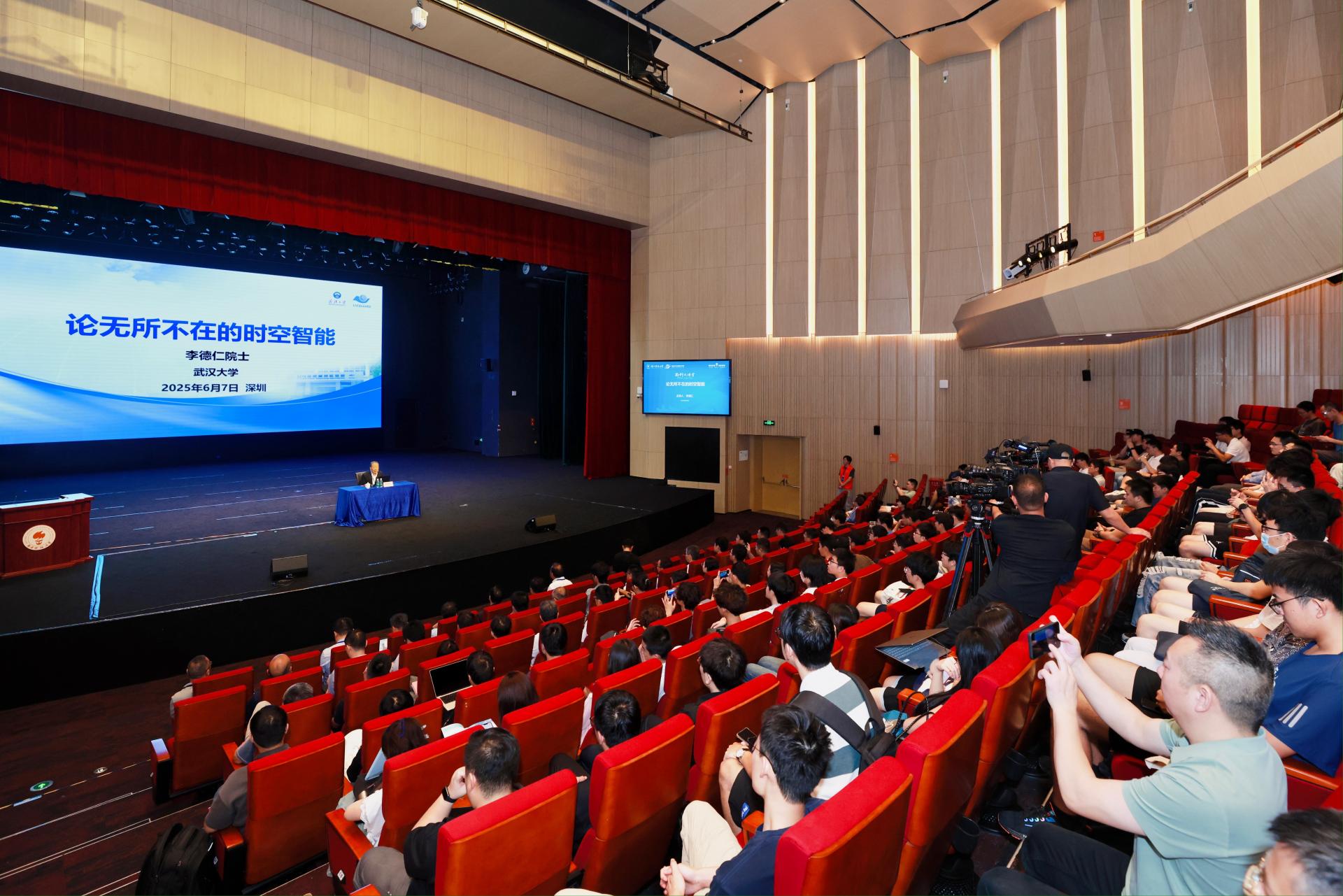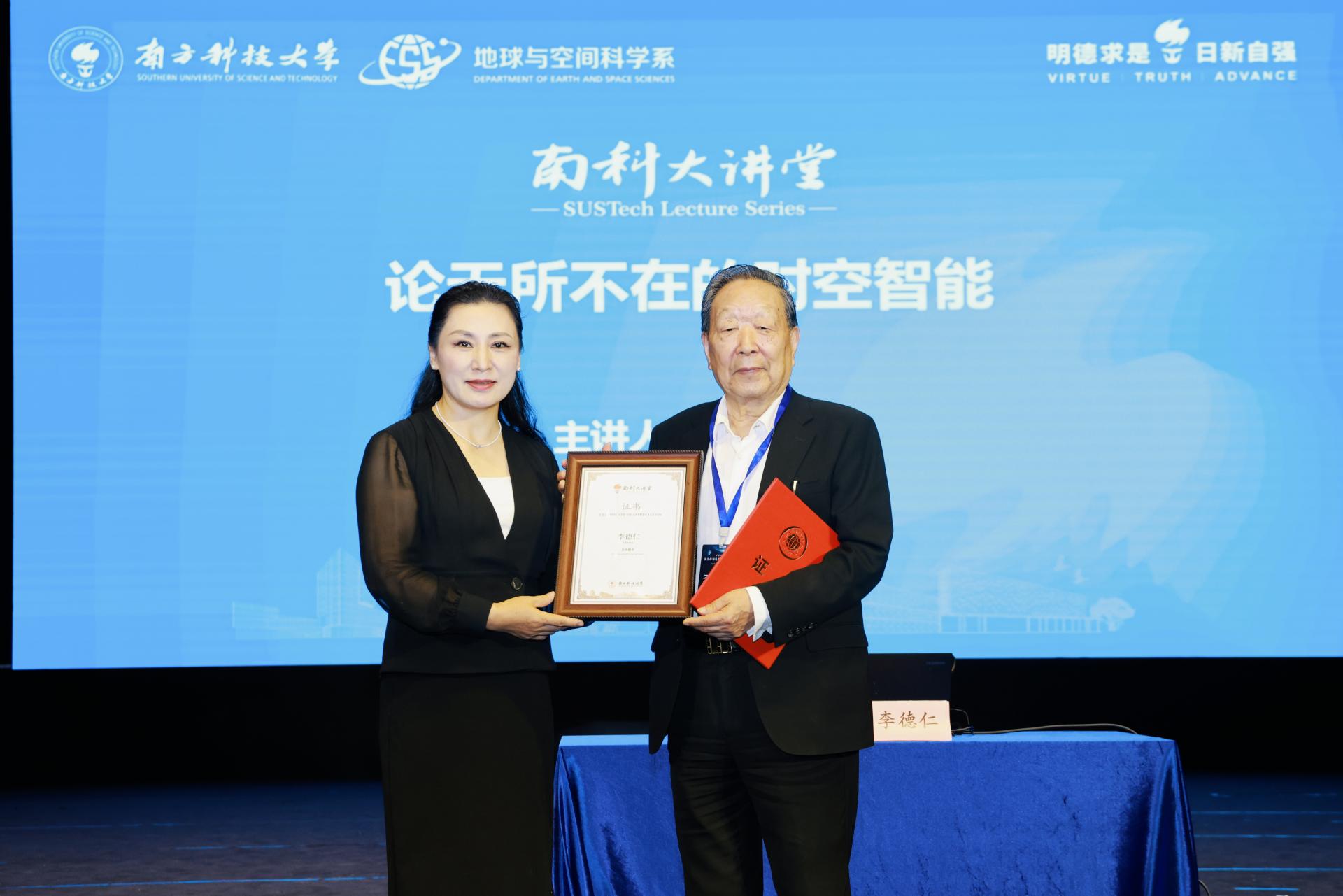On June 7, the Southern University of Science and Technology (SUSTech) hosted a distinguished guest speaker, Deren LI, Academician of both the Chinese Academy of Sciences (CAS) and the Chinese Academy of Engineering (CAE), as part of its prestigious SUSTech Lecture Series at the University’s Convention Center.
Academician LI, who was honored with the 2023 State Preeminent Science and Technology Award—China’s highest scientific accolade—delivered a keynote lecture titled “The Advent of Ubiquitous Spatiotemporal Intelligence”. In his presentation, he explored groundbreaking advancements at the intersection of geospatial remote sensing and artificial intelligence (AI), offering visionary perspectives on how these technologies are reshaping the future of intelligent spatial analysis and decision-making.
The event brought together SUSTech’s University Council Chairperson Hong JIANG, along with faculty members and students from SUSTech and Shenzhen University, with Chair Professor Fei LI from the Department of Earth and Space Sciences serving as the moderator.


Starting with the foundational concept of “matter-motion-spatiotemporal”, Academician Deren LI provided a comprehensive overview of the origins and core concepts underpinning the emerging field of spatiotemporal intelligence. He highlighted that in today’s era of ubiquitous connectivity and AI-driven transformation, conventional methods for acquiring and processing spatiotemporal information have become inadequate to address the demands of an increasingly smart and interconnected society. By deeply integrating satellite navigation, remote sensing, intelligent sensors, cloud computing, and AI technologies, spatiotemporal intelligence has evolved into a new-generation AI system characterized by “perception-cognition-decision-making” capabilities.
Academician LI emphasized that this emerging field tackles fundamental questions—“When?”, “Where?”, “What?”, “What has changed?”, “Why?”, and “What is the best course of action?”—enabling smarter, data-driven solutions. He introduced the “Four Rights” paradigm—delivering the right data/information/knowledge to the right person, at the right place and time—as a transformative framework for intelligent services that harmonize sustainable human-nature interactions. From smart city governance and real-time disaster response to autonomous transportation and environmental sustainability, he demonstrated how spatiotemporal intelligence is already reshaping modern society.
The lecture sparked a lively discussion, with one student posing a provocative question: “Could AI eventually surpass human intelligence?” Academician LI responded with a compelling perspective that human intelligence would remain nature’s ultimate marvel, and that every AI capability traces back to human ingenuity.

Following the lecture, Chairperson JIANG presented Academician LI with commemorative certificates from the Chinese Society for Geodesy, Photogrammetry, and Cartography (CSGPC) and the SUSTech Lecture Series.
This lecture also served as the keynote presentation for the 2025 Symposium on Deep Space Remote Sensing and Geomatics at SUSTech. Academician LI’s insights offered a strategic roadmap for the University to advance in AI-driven geospatial science and next-generation spatiotemporal techniques. Moving forward, SUSTech will further leverage its interdisciplinary expertise to pioneer innovations in the frontiers of these transformative fields.
Proofread ByYuwen ZENG
Photo ByDepartment of Earth and Space Sciences